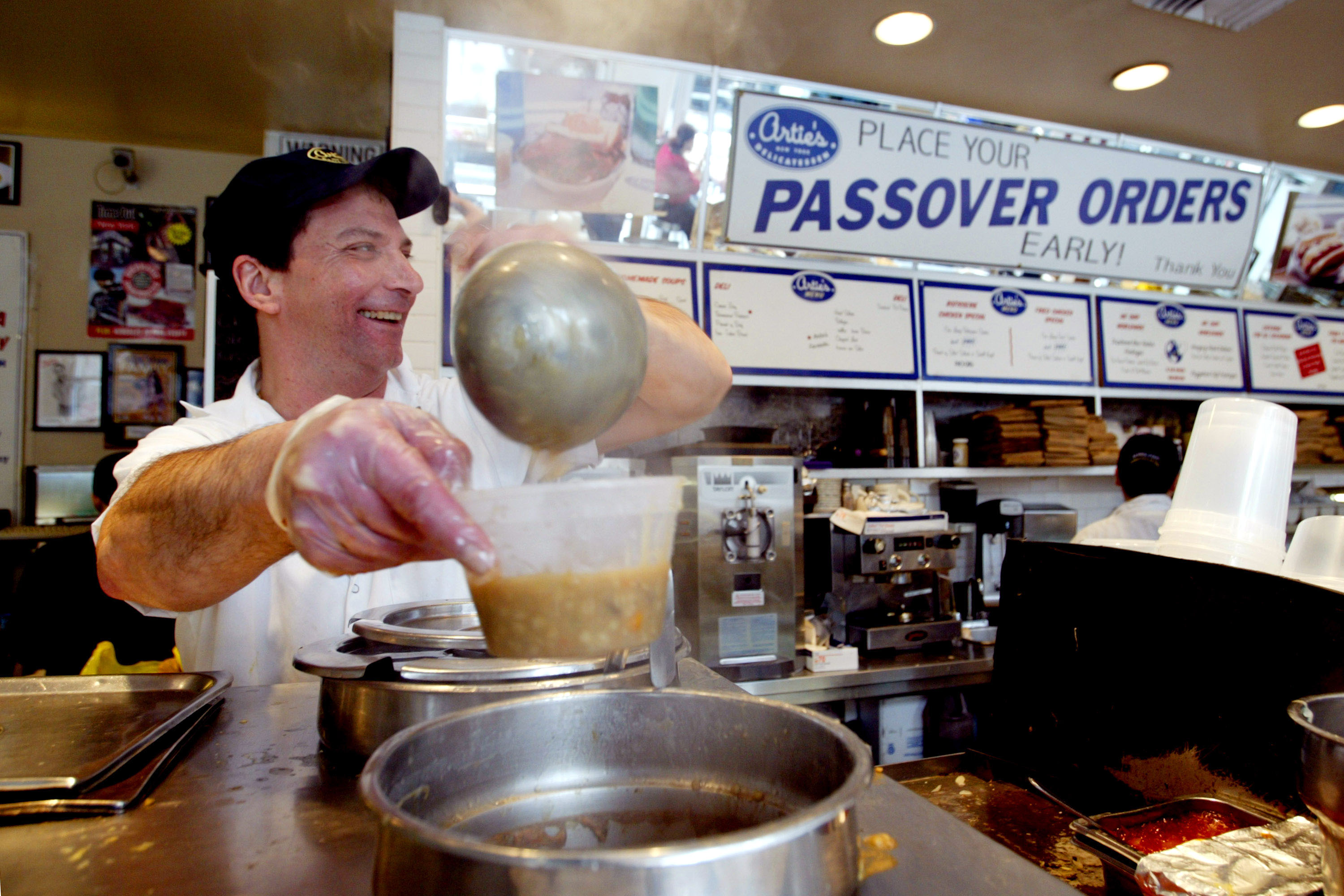Why everyone loves Passover
It's more than the matzo ball soup


A free daily email with the biggest news stories of the day – and the best features from TheWeek.com
You are now subscribed
Your newsletter sign-up was successful
Passover, which begins tonight, is one of the most widely celebrated Jewish holidays. Recent studies show that 70 percent of Jews celebrate this ritualized re-telling of the Exodus story, far more than the 53 percent who observe Yom Kippur or the 39 percent who are members of a synagogue.
There are also increasingly non-Jews observing Passover. The Mormon Brigham Young University holds a seder, the ritual Passover meal, annually, as do some churches, either to give their congregants an insight into Judaism or interpret it through a Christian lens.
So, why, in this age of rising atheism and "nones," does this ancient religious ritual continue to appeal to so many?
The Week
Escape your echo chamber. Get the facts behind the news, plus analysis from multiple perspectives.

Sign up for The Week's Free Newsletters
From our morning news briefing to a weekly Good News Newsletter, get the best of The Week delivered directly to your inbox.
From our morning news briefing to a weekly Good News Newsletter, get the best of The Week delivered directly to your inbox.
One key to its draw, particularly among Jews, is that you don't have to leave your home. It requires no membership to a house of worship, so you don't have to pay dues or be forced to contemplate your relationship with God. Instead of a rabbi acting as master of ceremonies, it is our own family or friends leading the evening. If you need to laugh, or go pee, it's all okay.
There's also the food, which is plentiful if not leavened, and people really like to eat. The meal includes a number of courses, starting with the symbolic foods and ending with a hearty meal of, often, brisket and potato kugel. Also, ritual makes food tastier. (Guests often comment on how one of the meal's highlights is eating a sprig of parsley, something I doubt they would feel without all the pageantry surrounding it.)
And then there is the storytelling. The meal unfolds around an epic tale, the escape of the Israelites from slavery to freedom, and a series of philosophical inquiries into the act of remembering. We eat charoset to symbolize the mortar used by the slaves, dip our vegetables in salt water to symbolize their tears, all while drinking four cups of wine and reclining on pillows to celebrate our freedom. The tension between slavery and freedom may for most of us be centuries away, but in metaphorical terms it has quite a hold on the human imagination. It inspires us to pursue justice, personally and politically. Passover gives us an excuse to get drunk and talk about all this.
But perhaps the real secret to Passover's success lies not in its fixed parts, but those open to interpretation. It's a holiday that finds itself right at the sweet spot between tradition and innovation, constancy and mutability; people always seem to be finding new ways in.
A free daily email with the biggest news stories of the day – and the best features from TheWeek.com
It is possible to engage with the seder as a lefty atheist Jew or ultra-orthodox believer. There are rock n' roll seders, environmental seders, feminist seders, secular seders, social justice seders, men's seders, hotel resort seders, and even kosher 10-minute seders for the busy or commitment adverse.
There are also a seemingly infinite number of Haggadahs (the text read throughout the meal), and every year a dozen or so new ones come along. With the recent arrival of Haggadot.com, we can now design our own, a perfect compromise for those who crave the wisdom of the past but don't want to leave the "you do you" culture in which we all live.
This isn't a bad thing.
In order for rituals to survive they require some flexibility, an ability to adapt to the times without being consumed by them. Passover allows us to be individuals while still participating in a formal ritual governed by a communal past. The seder gives us all a chance to explore the ways in which we are still tethered to this past, without ever feeling trapped by it.
The Haggadah states that "in each generation, each person is obligated to see himself or herself as though he or she personally came forth from Egypt." I'm not sure that each and every seder attendee gets there, but a good many still want to try.
Elissa Strauss writes about the intersection of gender and culture for TheWeek.com. She also writes regularly for Elle.com and the Jewish Daily Forward, where she is a weekly columnist.
-
 The Olympic timekeepers keeping the Games on track
The Olympic timekeepers keeping the Games on trackUnder the Radar Swiss watchmaking giant Omega has been at the finish line of every Olympic Games for nearly 100 years
-
 Will increasing tensions with Iran boil over into war?
Will increasing tensions with Iran boil over into war?Today’s Big Question President Donald Trump has recently been threatening the country
-
 Corruption: The spy sheikh and the president
Corruption: The spy sheikh and the presidentFeature Trump is at the center of another scandal
